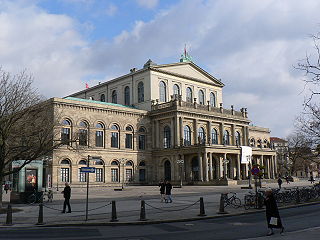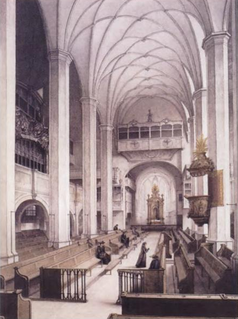
Helen Jeanette Donath is an American soprano with a career spanning fifty years.
Teresa Żylis-Gara is a Polish operatic soprano who had a major international career during the 1950s through the 1990s. Although chiefly known for her portrayals in operas by Mozart, Puccini and Verdi, she sang a broad repertoire that encompassed a wide array of musical periods and languages. In addition to her work on the stage, she has been active as a concert singer and recitalist, and is particularly admired for her interpretations of the works of Bach, Handel and Brahms.
Kurt Equiluz is an Austrian classical tenor in opera and concert, known for recording works of Johann Sebastian Bach with Nikolaus Harnoncourt and Helmuth Rilling, a member of the Vienna State Opera as a tenor buffo from 1957 until 1983.
Claudia Hellmann was a German contralto concert and operatic singer, primarily with the Stuttgart Opera.
Franz Kelch was a German bass-baritone lied and oratorio singer. His discography includes works of Johann Sebastian Bach, Dieterich Buxtehude, George Frideric Handel, and Claudio Monteverdi.
Gabriele Schreckenbach is a German contralto singer in opera and concert and an academic voice teacher.
Ingeborg Reichelt is a German soprano singer known for her interpretation of works by Johann Sebastian Bach.
Hildegard Laurich, was a German classical contralto singer.
Werner Güra is a German classical tenor in opera, concert and Lied, also an academic teacher in Zurich.
Wolfgang Schäfer is a German choral conductor and academic. He founded the Freiburger Vokalensemble, the BosArt Trio, and the Frankfurter Kammerchor.
Anna Reynolds was an English classical mezzo-soprano and contralto singer in opera and concert.

Hans-Christoph Rademann is a German choral conductor, currently the director of the Dresdner Kammerchor and the Internationale Bachakademie Stuttgart.
Frankfurter Kantorei is a German mixed concert choir established in July 1945 by Kurt Thomas in Frankfurt. In 1969, Helmuth Rilling assumed leadership, and the choir began recording the complete Bach cantatas in 1972. From 1982 to 1997, Wolfgang Schäfer was artistic director of the Frankfurter Kantorei. Since then it has been led by Winfried Toll. The choir has performed concert tours abroad in Paris, Lyon, Venice, Turin, Vienna, Helsinki, St Petersburg, Istanbul, Los Angeles, Seattle and Toronto, among others, and first appeared in Israel in 1979. The group has made numerous CD recordings on the EMI Classics label. In 2000 they were a recipient of the Binding Kulturpreis, and in May 2000, they performed Brecht/Weill's Three Penny Opera at the Musiktriennale Köln of Cologne. The choir has a membership of about 70.
Marie-Louise Gilles is a German mezzo-soprano in opera and concert, also a professor of voice and stage director of opera.
Rotraud Hansmann is an Austrian soprano in opera and concert. She was a singer in the recordings by Nikolaus Harnoncourt which began historically informed performances, such as Monteverdi's operas and works by Johann Sebastian Bach. She was a teacher at the University of Music and Performing Arts, Vienna.
Iris Vermillion is a German operatic mezzo-soprano. A member of the Deutsche Oper Berlin from 1988, she has enjoyed an international career, appearing in Amsterdam with Nikolaus Harnoncourt and at the Salzburg Festival, among others.

Elisabeth Kulman is an Austrian classical singer who has performed operatic roles in soprano, mezzo-soprano and contralto repertory. She has appeared at opera houses in Vienna and internationally. She has performed early operas such as Legrenzi's Il Giustino as well as new works, creating the role of Gora in the premiere of Reimann's Medea at the Vienna State Opera. She recorded Lieder by Mussorgsky, Bach's Christmas Oratorio with Peter Schreier and Beethoven's Missa solemnis with Nikolaus Harnoncourt. From 2015, she has focused on concert singing.
Patricia Johnson is an English operatic mezzo-soprano. She made an international career and is known for her dramatic voice and her stage presence. She appeared in leading roles of the repertory, such as Carmen and Eboli, and created new roles, such as the Baronin Grünwiesel in Henze's Der junge Lord, and the Princess in Nicolas Nabokov's Love's Labour's Lost.
Horst Laubenthal, real name Horst Neumaier, is a German operatic tenor and academic voice teacher. He is known internationally, both as an opera singer especially in Mozart roles such as Belmonte, Don Ottavio and Tamino, and as a concert and recital singer, with a focus on works by Johann Sebastian Bach. He has appeared at major opera houses and festivals, including the Glyndebourne Festival and the Salzburg Festival, and made many recordings, including rarely performed works such as Korngold's Violanta.

Kieth Engen was an American operatic bass who was a member of Munich's Bavarian State Opera for decades. Although his career was based in Munich, he appeared internationally as a guest singer at major opera houses and festivals and performed and recorded many of Bach's Passion oratorios and cantatas, primarily with the conductor Karl Richter. He was born Keith Sheldon Engen in Frazee, Minnesota, and died in Murnau am Staffelsee, Germany at the age of 79. He was given the title of Kammersänger in 1962 and was a recipient of the Bavarian Order of Merit. In the mid-1950s he also had a brief parallel career as a pop singer under the pseudonym Stan Oliver.











